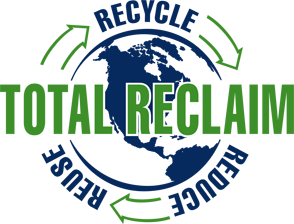Washington’s New Battery EPR Law: What It Means for Recycling & Your Business
Washington State has recently enacted a battery product stewardship (EPR) law that will transform how batteries are collected and recycled statewide. This new legal framework places responsibility on battery producers to fund and manage a comprehensive recycling system. For recyclers like Total Reclaim, this presents both opportunity and obligation. Below, we break down the law, its timeline, and what businesses and consumers need to know.
Used household batteries collected for recycling under Washington’s new battery stewardship program.
What Is the Washington Battery Stewardship Program?
In 2023, Washington passed SB 5144, establishing a battery stewardship program requiring battery producers to operate a statewide collection and recycling system. productstewardship.net+2Washington State Department of Ecology+2
Key aspects of the program include:
Start dates:
• Portable batteries (e.g. phones, laptops, flashlights) must be included by January 1, 2027 Washington State Department of Ecology+1
• Medium-format batteries (like those used in e-bikes, mobility devices) must join by January 1, 2029 Washington State Department of Ecology+1Producers must submit an operating plan to Ecology by July 1, 2026, detailing how they will collect, process, transport, and fund the program. Washington State Department of Ecology
The law also includes provisions for EV battery management, infrastructure planning, and public safety. Washington State Department of Ecology
How This Changes the Role of Producers & Retailers
Under RCW 70A.555:
Producers (manufacturers, brands, importers) of covered batteries must participate in a stewardship plan to sell batteries in Washington after the effective dates. Legislative Info Center+1
Retailers may only sell covered batteries if the producer certifies participation in an approved battery stewardship organization. Legislative Info Center
Retailers are not required to act as collection sites, but if they do, they must comply with collection rules. Legislative Info Center
Batteries must be marked according to state requirements beginning in 2028. Beveridge & Diamond PC+1
Why This Matters for Recycling Businesses and Consumers
Increased volume & demand: With producers funding collection, more battery waste will enter formal recycling streams, creating greater demand for recyclers.
Greater convenience: Washingtoners will have easier access to drop-off locations statewide.
Better safety: Safe handling and regulation of batteries—especially lithium-ion types—helps reduce fire risk in waste facilities. Recycling Today+1
Standardization: The plan sets consistent performance goals, safety protocols, and reporting requirements across the state.
What Total Reclaim Is Doing — And What You Can Do
As Washington’s battery stewardship program rolls out, here’s how Total Reclaim is preparing:
Scaling up battery processing infrastructure
Ensuring compliance with new regulations
Collaborating with state agencies and producers
Expanding capacity for portable and medium-format battery recycling
What you can do now:
For producers & retailers: get ready to participate in an approved stewardship plan
For businesses & consumers: start separating and storing batteries separately from general waste
For recycling partners: ensure capacity, documentation, and safety protocols are up to date
Looking Ahead & Timeline
2024–2025: Rulemaking, stakeholder input, and regulation drafting are underway. Washington State Department of Ecology+1
July 1, 2026: Plan submission deadline from stewardship organizations
January 1, 2027: Mandatory coverage for portable batteries begins
January 1, 2029: Medium-format batteries come under regulation
2028: Battery marking requirements go into effect
Washington’s new battery EPR law marks a major shift in how used batteries are managed. At Total Reclaim, we’re ready to meet these changes head-on—supporting safer, more efficient battery recycling in Washington and beyond. Contact Us

